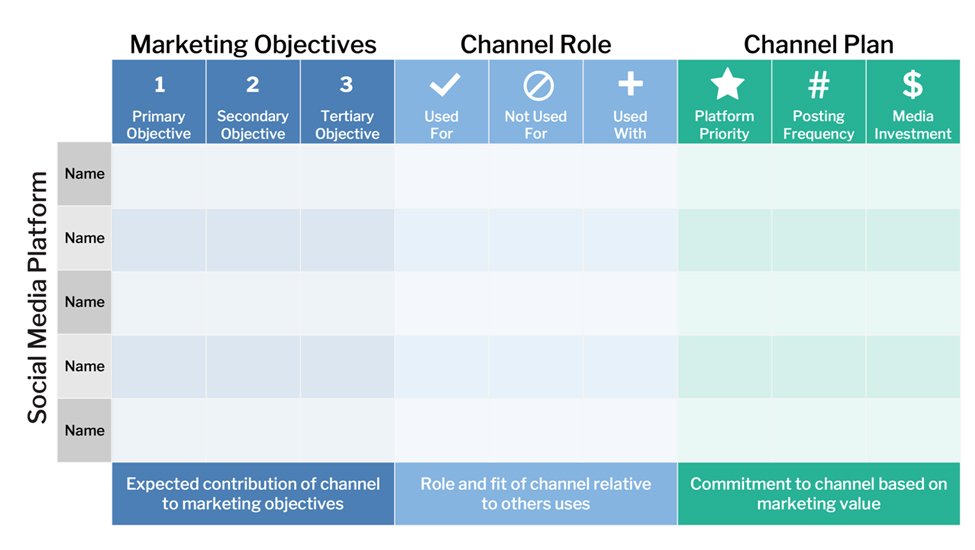
Social Media Footprint
Establish the goals, roles, and relationships among all of your different social channels.

The purpose of a Social Media Escalation plan is to determine when an issue has reached a point where it needs to be addressed with more gravity. It is an important decision-making mechanism to document so that everyone has a shared understanding of how to respond quickly when different issues arise. While issue management is not new, marketers often need to create escalation plans for social media given how influential comments and posts can be on brand reputation. Escalation plans align teams on the conditions that need to be met to involve more senior stakeholders for greater authority and support. Social Media Escalation plans can be created using different formats, including decision trees. Use the format this is most clear and relevant for you.

Establish the goals, roles, and relationships among all of your different social channels.

Manage all of the content that you will be posting via your social media channels.
This is a project from Kickframe – a digital marketing strategy consulting and training company.